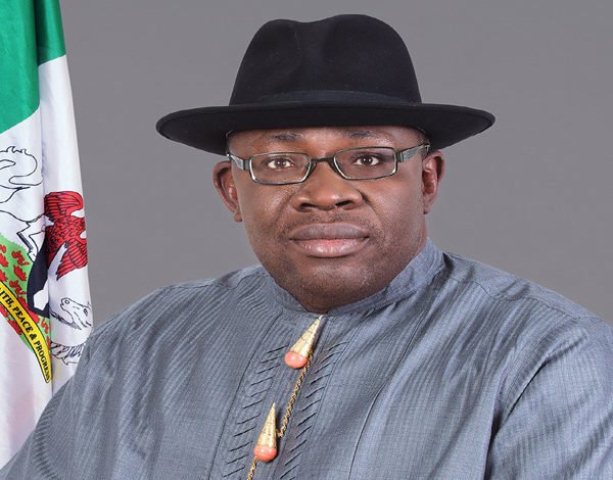Nigerian authorities have had incessant failed policies outlawing flaring of gas in the Niger Delta region, the hub of Nigeria’s economy. The consequences of this are the health, human rights and environmental challenges the residents are suffering; and the culprits of these woes – multinational oil companies – do not pay the fines leveled against by the government, ODIMEGWU ONWUMERE unearths
Gas flaring in the Niger Delta has become a recurring nightmare to the inhabitants despite lukewarm policies implemented by the successive governments that were tepidly executed.
“Due to unsustainable exploration practices, coupled with the lack of gas utilization infrastructure, we flare more than 75 per cent of the gas produced and re-inject only 12 per cent to enhance oil recovery,” authorities have said.
Not minding a judgment dished out by the Federal High Court of Nigeria in November 2005 against the practice that violates human rights, oil companies in the area still flare gas with reckless abandon.
The judgment which took place in Benin City, Justice C. V. Nwokorie ruled that the practice is illegal because, as according to him, “the damaging and wasteful practice of flaring cannot lawfully continue.”
Residents of Niger Delta witnessed, in 2010 alone, how over 3.5 billion cubic feet (100,000,000 m³) of related gas produced in the Niger Delta, 2.5 billion cubic feet (70,000,000 m³), or approximately 70 per cent were flared in the atmosphere per annum. What happened in the Niger Delta in 2010 in term of gas flaring, as according to those who know better, equaled UK’s total natural gas utilization which was put roughly at 25 per cent and 40 per cent of Africa’s gas ingestion in 2001.
This was affirmed by the authorities recently, “While statistics may not be accurate, the quantity of gas flared in Nigeria exceeds over 40 per cent of the gas flared annually across Africa, which amounts to about $7 billion in waste, apart from economic waste being a consequence of gas flaring.”
Our reporter learnt that what the Niger Deltans have come to live with, in the name of gas flaring, contains, “nitrogen dioxide, sulphur dioxide, volatile organic compounds, like benzene, toluene, xylene and hydrogen sulphide, as well as carcinogens, like benzapyrene and dioxin.” And 755 million SCF are flared each day, specialists say.
These are by-products of flaring. The irony is that the flared gas is situated within residential areas, with health specialists not smiling, when they inform that Niger Deltans are prone to sicknesses such as leukemia and other dangerous blood-connected diseases.
Represented by Deputy Senate Leader, Senator Ibn Bala Na’Allah President, while proclaiming open a public hearing on Gas Flaring (Prohibition) Bill 2017, Dr Bukola Saraki said, “Apart from economic waste being a consequence of gas flaring, flared gas is also known to contain toxic substances, which cause respiratory diseases and air pollution, leading to depletion of the ozone layer, and ultimately having an adverse effect on weather and climate.”
The senate situated its spirit high on June 1 2017, carving a niche over the 39-year-old law, which recommends only N10 as fine for gas flaring. Saraki added, “The issue of gas-flaring in Nigeria is a matter of great national embarrassment. We have no reason to continue to flare this precious resource God has endowed us with. This bill, therefore, seeks to make provisions for the prohibition of the flaring and venting of natural gas in any oil and gas production operation in Nigeria and for other matters connected therewith.
“Gas-flaring is as old as the discovery of crude oil in Nigeria. While it remains a global environmental malaise with attendant environmental consequences, we must move with the rest of the world to seriously put an end to it. Gas flaring is not inevitability…”
In many occasions, the Federal Government (FG) had boasted that it would revoke licenses of oil firms over gas flaring. But this is a tall dream. In May 2018, at the 2018 Buyers’ Forum/Stakeholders’ Engagement organized by the Gas Aggregation Company of Nigeria, GACN, Minister of State for Petroleum Resources, Mr. Ibe Kachikwu reiterated the FG’s make-believe boast to commence the revocation of the licences of oil companies that fail to stop flaring of gas in their operations in the country.
On November 1, 2016, the Obinna Chidoka-led House Committee on Environment and Habitat in the House of Representatives had warned oil companies operating in the Niger Delta region against continuous flaring of gas, saying it had subjected the lives of residents in the area to serious health hazards. According to Chidoka, “It is also established that 950 total recorded incidences of oil spill occurred in 2015 with a volume of 47,775.49 barrels impacting 595,800 square meters.
“Out of this, only 27.78% were cleaned. In 2016, so far 499 spills have been recorded, the record stated that 28,543.69 barrels were spilled covering 595,800 square meters areas of impact.
“Further available statistics in 2015 shows that Addax Oil company recorded two incidents of spills, AP Moller 2, Chevron 14, Conoil Producing Ltd 2, Mobil Producing Nigeria 63, Agip 71, NPDC 10, SEPLAT 8, Shell Petroleum Development Company 28, among others.
“Subsequently in 2016, a total incidence of spill indicates that Agip has 43 recorded spills so far, Mobil Producing Nigeria 26, Shell Petroleum Development Company 18, Chevron 8 and Nigeria Petroleum Development Company 9.”
Specialists however finger Benzene as the major causative factors of terminal health problems, like cancer, due to it is one of the hazardous chemicals that circulate with flaring. Meanwhile the same House of Representatives that once sued for end of gas flaring double-spoke on August 6, 2018, through member representing Sagbama-Ekeremor Federal Constituency, Mr Fred Agbedi, saying that gas flaring in the Niger Delta region cannot be completely extinguished, as being talked about.
As the House Committee Chairman on Gas, Agbedi said that the reason for his views was that oil companies needed to smolder some amount of gas in the course of crude oil adventure and production. According to him, “The Federal Government is taking few steps to see how gas flaring can be reduced or eliminated. And that is why it is also coming out with policies of offtakers of the gas that is being flared.
“Once the contracting of gas flare to offtakers is concluded, there will be companies which will take the flared gas which will largely reduce gas flaring. But the fact remains, you need some quantity of gas to be burned for the production to also take place.
“Even when the offtakers are taking what they are supposed to take as quantity of gas that is being flared, there will be some kind of industrial flare that is going to take place for the process of exploration of crude oil to take place.
“You cannot completely lock it down. What the Federal Government and the world over are aiming at, is to reduce gas flaring to such an extent that it no longer causes challenge to the environment and the atmosphere. That is what the government is working towards and it will take some time to get that sorted.”
When this was not working, Gov. Ifeanyi Okowa of Delta State on November 26, 2018, when Course 41 of the Armed Forces Command and Staff College, Jaji, led by Major-Gen. Felix Edafioghor in Asaba came to his office on a courtesy visit, called on the FG to put stringent measures in place to end gas flaring in the country, no matter the language some persons and groups use to justify the prohibited practice.
According to the governor, “Stopping gas flaring will be so much better for our people because the flared gas has already destroyed the environment, not just the natural habitat in terms of farming. It has also polluted very badly the air that we breathe.
“Only God knows the level of damage that it has caused and we believe that the laws must be implemented in such a manner that gas flaring is not just tied up to fines. This is because, as long as gas flaring is tied to fines, the oil companies begin to realize that it may be cheaper or easier to pay the fines than to stop the flaring of gas. Then, we obviously are not discouraging them.’’
Gov. Okowa further stated, “I am aware that a lot has been done in the last few years, but there is a lot more that can be done because the gas that we flare can generate a lot of income for the oil companies if only it can be properly utilized. So, we must stay on our laws and ensure that we do what is right and stop tying the issue of gas flaring to fines.
“This is because continually tying gas flaring to fines is injurious to our people and our environment… This has also been worsened by the regularity of illegal bunkering activities that take place in the state in which a lot of damage is done to our environment. The damage constitute both agricultural and health hazard to the people.’’
How to remedy the situation is one problem besetting the FG, which on December 6 2017, had said that it discovered 178 sites where gas were being flared. This was against the general speculation of 140 sites. The outcome might not have been made public if not with the efforts of the World Bank, United States Agency for International Development, USAID, and the Canadian government. A Programme Coordinator of the Nigerian Gas Flare Commercialization Programme in the Ministry of Petroleum Resources in that year, Mr. Justice Derefaka, bared his mind in Abuja, at the Gas Buyers’ Forum, organized by the Gas Aggregation Company of Nigeria, stating that at least, the government had received 60 per cent data of survey on gas flaring sites.
Notwithstanding, while speaking at the 2018 Oloibiri Lecture Series and Energy Forum, OLEF, organized by the Society of Petroleum Engineers, SPE, the Group Managing Director of the Nigerian National Petroleum Corporation (NNPC), Mr. Maikanti Baru said Nigeria was losing N868 million daily, and 700 million SCF were being flared as gas which opinion leaders said were capable of generating an equivalent of 5,000 megawatts of electricity per day. According to the source, “Using an average of $4 per 1,000 SCF of gas and at exchange rate of N310 to a dollar, the flaring of 700 million SCF per translates to a loss of N868 million daily to the country.”
Perhaps, seeing that the citizens were not comfortable with her many failed promises on ending gas flaring, Nigeria dished out a rather misleading statement that she had reduced gas flaring by 26 percent in the last 10 years. Yet, the Department of Petroleum Resources, DPR, Gas flare Deputy Director and Head Upstream, DPR, Mrs. Pat Maseli stated at the 10th annual Sub-Saharan Africa Oil and Gas Conference in Houston Texas, US, that 3,500 megawatts of electricity was lost as a result of gas flaring and no fewer than 55 million barrels of oil equivalent (BOE) was also lost, while 25 million tons of carbon dioxide was emitted within the period under review.
Whilst observing the Nigeria International Petroleum Summit, NIPS, in Abuja, in February 2019, a former Chairman of the Nigerian Electricity Regulatory Commission, NERC, Mr. Ransome Owan and other experts were not pleased with the development. They frowned at the lack of commitment, especially on the part of the domestic gas buyers for their nonchalant approach in the area of utilizing gas in the country, but especially the power sector. Against this backdrop, checks revealed that majority of the oil fields in the country lack infrastructure to handle gas, hence the promotion of gas flaring.
The experts indicted Nigerian authorities for their lame-duck approach in evacuating gas to Ghana and other countries along the pipeline through West African Gas Pipeline and supplying gas to Europe through the proposed Nigeria-Morocco gas pipeline project. This has remained a farfetched venture and initiative.
The Programme Manager, National Liquefied Petroleum Gas Expansion Plan, Mr. Dayo Adeshina shows concern over the immense gap in LPG supply in Nigeria, crying that the Nigerian Liquefied Natural Gas, NLNG, in the modern age, still supplies LPG to three main terminals in Lagos, while a large proportion of LPG consummated in the country is done by roads to remote locations.
In its renowned bigheaded tactics, government in May 2018, had promised to end gas flaring by 2020, but this is also towing the line of its foot-dragging policies. For instance, the Group Managing Director, NNPC, Dr. Maikanti Baru had said that a three-point strategy was in place to zero flare.
He said at the 50th Offshore Technology Conference, OTC, in Houston, Texas, the United States of America that, “Total flares have been significantly reduced to current levels of about 800 million standard cubic feet per day, MMSCFD, and in the next 1-2 years we would have completely ensured zero routine flares from all the gas producers.” Meanwhile checks revealed that companies that flare gas are yet to submit Field Development Plans, FDPs, to the Department Petroleum Resources, DPR, being the industry regulator.
The source said, “NNPC supplies about 3.6 billion standard cubic feet, SCF, of gas daily to the NLNG, while it supplies about 1.3 billion SCF of gas to the domestic market daily, which would sometimes be utilised and sometimes ignored.”
Whatever that happens to fair play, the sad side of all the illegalities of gas flaring in the Niger Delta is that oil companies do not pay gas flaring penalties, hence their slapdash behaviour amounts to loss of revenue in billions of dollars that should have been in government coffers. The then Minister of Finance, Kemi Adeosun cried out this in Abuja in January 2018, saying that the companies are taking advantage of the wording in the permissible framework which orders charges instead of penalties for gas-flaring.
In her words, “What do the international oil companies do? They flare; they pay the charge on which they get tax relief. That’s just bad drafting. The government is approaching lawmakers to amend the law and have the word ‘penalty’ replace ‘charge’. Just that one word has potentially cost us billions of dollars.”
Recently, residents in the Niger Delta took with a pitch of salt the increment in punishment by government for gas flaring to $2 per 1,000 average cubic feet of gas, SCF, from N10 per 1,000 SCF of the product flared. The move by the government was contained in a document titled ‘Flare Gas (Prevention of Waste and Pollution) Regulations 2018’, made public on October 1 2018. The residents taking the government unserious was aftermath of many policies on gas flaring that have not hold water.
Their point is that they have been enduring a long history of gas flaring since 1950s that crude oil was discovered in the area. Apart from health issues they suffer as a result of gas flaring, they also experience rusty roofs, acid rain and environmental degradation. Despite what they are enduring, many of the communities in the area do not have potable water even as their main sources of water – creeks and rivers – have been deviously polluted with oil spillages.
Our investigations from Ogbia Local Government Area, Bayelsa State to Tombia in Yenagoa Local Government Area to Gbarantoru to Angiama in Southern Ijaw council area to Ogoni in Rivers State to A’Ibom Eket, Esit Eket, Eastern Obolo, Ibeno, Mbo and Onna local government areas in Akwa Ibom State to Owaza in Abia State and so many others, reveal that the residents cannot sleep at night.
Some of the residents finger Shell Petroleum Development Company, SPDC, as the arrowhead for their woes because of the multinational oil company’s non-stop gas flaring that also cracks their houses. Especially, residents of Shell Petroleum Development Company, SPDC Integrated Gbarian/Ubie Gas congregation facility weep without consolation. It is believed that in 2017 alone, over 200 people died in Niger Delta monthly.
Odimegwu Onwumere writes from Rivers State. WhatsApp: +2348032552855. E-mail: apoet_25@yahoo.com
Support Quality Journalism in the Niger Delta Region
Join us in our mission to bring development journalism, cultural preservation, and environmental awareness to the forefront. Your contribution makes a difference in the lives of the people of the Niger Delta. Donate today and be a part of the change!








